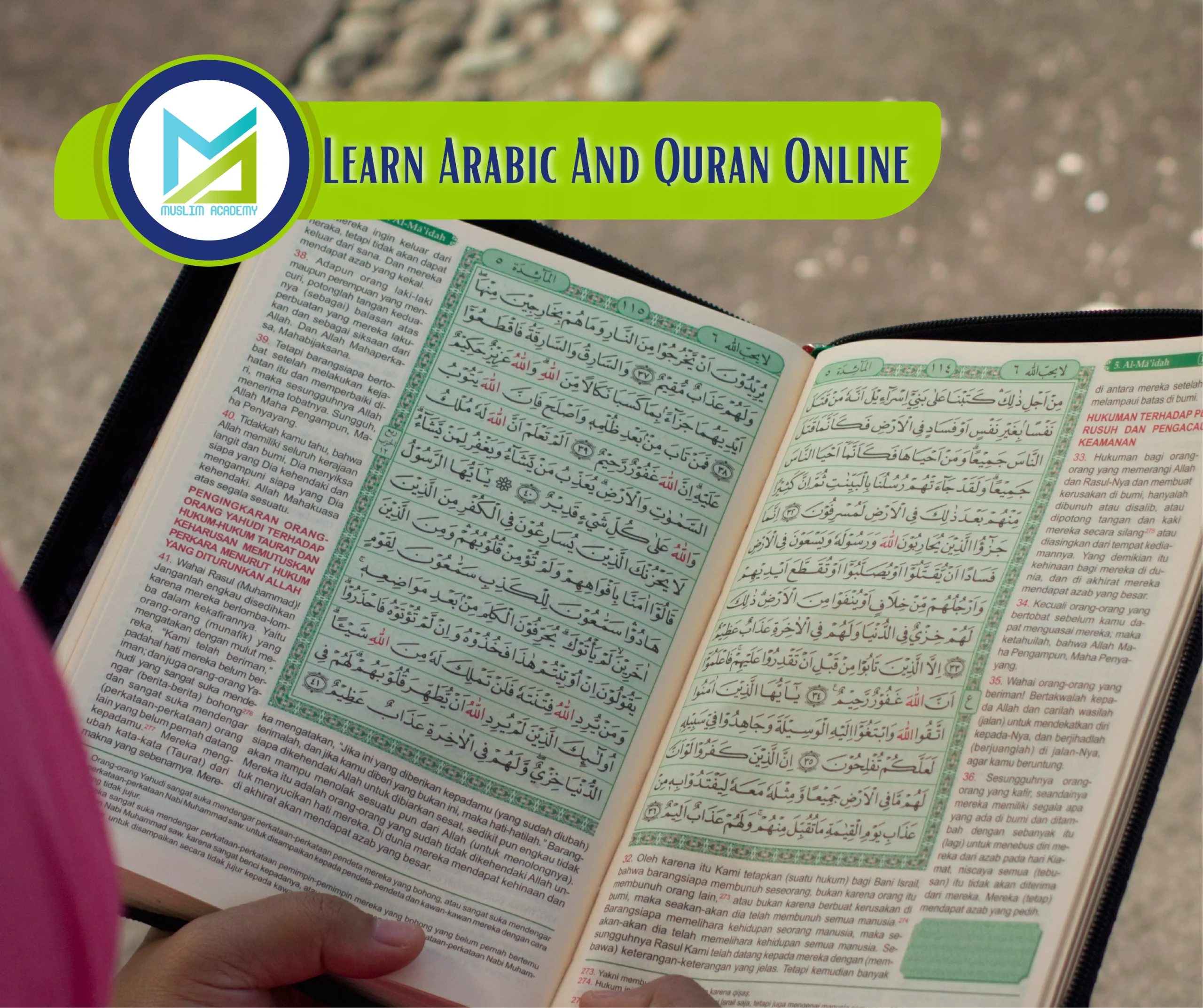Start Online Quran Classes with Muslim Academy
https://muslimacademy.net/index.php/free-trial/
In today’s interconnected world, the pursuit of Islamic knowledge has transcended traditional classroom boundaries. The opportunity to Learn Arabic and Quran Online with Muslim Academy has opened doors for millions of students worldwide, providing unprecedented access to authentic Islamic education regardless of geographical location or time constraints. This digital revolution in Islamic learning has transformed how people approach their spiritual and linguistic development, making sacred knowledge more accessible than ever before.
The Growing Demand for Online Islamic Education
The modern era has witnessed a significant shift in educational preferences, with students increasingly seeking flexible learning options that accommodate their busy lifestyles. The desire to Learn Arabic and Quran Online with Muslim Academy has grown exponentially, driven by several factors including globalization, technological advancement, and the need for authentic Islamic education in non-Arabic speaking countries. This trend reflects a broader movement toward digital learning that maintains the sanctity and authenticity of traditional Islamic teaching methods while embracing modern technological tools.
Online platforms have successfully bridged the gap between traditional Islamic scholarship and contemporary educational needs. Students from diverse backgrounds now have the opportunity to connect with qualified teachers and scholars who possess deep knowledge of Arabic linguistics and Quranic sciences. This accessibility has particularly benefited Muslim communities in regions where qualified Arabic and Quran teachers are scarce, ensuring that geographical barriers no longer impede spiritual and linguistic growth.
Advantages of Digital Arabic and Quranic Education
The decision to Learn Arabic and Quran Online with Muslim Academy offers numerous advantages that traditional classroom settings may not provide. Flexibility stands as the primary benefit, allowing students to schedule lessons according to their availability and pace their learning journey based on personal capacity and circumstances. This personalized approach ensures that working professionals, parents, and students can pursue Islamic education without compromising their existing responsibilities.
Cost-effectiveness represents another significant advantage of online learning. Traditional Islamic education often requires substantial investment in travel, accommodation, and institutional fees, particularly when seeking education in Arabic-speaking countries. Online platforms eliminate these expenses while providing access to the same caliber of instruction, making quality Islamic education financially accessible to a broader demographic.
The comfort of learning from home creates an environment conducive to focused study and spiritual reflection. Students can engage with sacred texts in familiar surroundings, free from the distractions and social pressures that sometimes accompany group learning environments. This privacy particularly benefits female students who may face cultural or logistical challenges attending traditional classes.

Comprehensive Curriculum Structure
Modern platforms that offer opportunities to Learn Arabic and Quran Online with Muslim Academy typically provide comprehensive curricula that address multiple aspects of Islamic learning. Arabic language instruction forms the foundation, covering essential elements such as grammar, vocabulary, pronunciation, and sentence structure. These programs often begin with basic Arabic literacy, teaching students to recognize and write Arabic letters before progressing to word formation, grammatical concepts, and eventually complex sentence construction.
Quranic studies complement Arabic language learning, encompassing proper recitation techniques, Tajweed rules, memorization methods, and textual interpretation. Students learn the precise pronunciation rules that govern Quranic recitation, understanding the spiritual and linguistic significance of correct pronunciation. Advanced courses delve into classical Arabic literature, Islamic jurisprudence, and theological studies, providing students with a comprehensive understanding of Islamic scholarship.
Many programs integrate modern pedagogical approaches with traditional Islamic teaching methods, utilizing interactive multimedia content, visual aids, and gamification elements to enhance engagement and retention. This fusion of classical and contemporary educational techniques ensures that students receive authentic Islamic education while benefiting from proven modern learning strategies.
Technology Integration and Learning Tools
The infrastructure supporting efforts to Learn Arabic and Quran Online with Muslim Academy has evolved significantly, incorporating sophisticated technological tools that enhance the learning experience. High-definition video conferencing platforms enable real-time interaction between teachers and students, replicating the personal attention characteristic of traditional Islamic education. Screen sharing capabilities allow instructors to display Arabic texts, grammatical explanations, and visual aids that support comprehension and retention.
Digital whiteboards facilitate interactive learning sessions where students can practice Arabic writing, work through grammatical exercises, and engage with Quranic texts collaboratively. Recording capabilities ensure that students can review lessons multiple times, reinforcing concepts and addressing areas of difficulty at their own pace. Mobile applications complement web-based platforms, enabling students to access learning materials, practice exercises, and review content during commute times or brief breaks throughout the day.
Advanced platforms incorporate artificial intelligence to personalize learning experiences, adapting content delivery based on individual progress, learning preferences, and areas requiring additional attention. These systems track student performance, identify patterns, and provide targeted recommendations that optimize learning outcomes.

Teacher Qualifications and Authenticity
The credibility of programs designed to help students Learn Arabic and Quran Online with Muslim Academy largely depends on instructor qualifications and institutional authenticity. Reputable platforms maintain rigorous standards for teacher selection, requiring advanced degrees in Arabic language, Islamic studies, or related fields from recognized institutions. Many instructors possess traditional Islamic education credentials, including memorization of the entire Quran, formal training in Quranic recitation, and extensive study under established scholars.
Authentic online Islamic education programs emphasize the importance of maintaining traditional teaching methodologies while adapting to digital formats. This includes preserving the respectful relationship between teacher and student, maintaining proper etiquette during Quranic recitation, and ensuring that sacred texts receive appropriate reverence throughout the learning process. Quality platforms often provide detailed instructor profiles, academic credentials, and teaching experience information, enabling students to make informed decisions about their educational journey.
Community Building and Peer Interaction
Despite the physical separation inherent in online learning, successful programs that enable students to Learn Arabic and Quran Online with Muslim Academy actively foster community building and peer interaction. Virtual study groups, discussion forums, and collaborative projects create opportunities for students to connect with fellow learners, share experiences, and support each other’s educational progress. These interactions often develop into lasting friendships and study partnerships that extend beyond formal lesson times.
Many platforms organize virtual events, including Quranic recitation competitions, Arabic poetry sessions, and Islamic discussion circles that bring students together around shared interests and learning goals. These activities not only enhance the educational experience but also provide social connections that enrich students’ spiritual and cultural understanding.
Regular assessment and feedback systems ensure that students receive constructive guidance on their progress while maintaining accountability for their learning commitments. Group assessments and peer review exercises encourage collaborative learning and create opportunities for students to learn from each other’s strengths and perspectives.
Overcoming Challenges and Maximizing Success
While the opportunity to Learn Arabic and Quran Online with Muslim Academy offers numerous benefits, students must navigate certain challenges to achieve optimal results. Technical requirements, including reliable internet connectivity and appropriate devices, form the foundation for successful online learning. Students should ensure they have access to quality audio equipment and sufficient bandwidth to support interactive video sessions without interruption.
Self-discipline and time management skills prove crucial for online learning success. Without the structure of traditional classroom attendance, students must develop personal accountability systems that maintain consistent study habits and progress toward learning objectives. Creating dedicated study spaces, establishing regular study schedules, and setting specific goals help maintain motivation and focus throughout the learning journey.
Active participation in online sessions, regular practice outside of formal lessons, and consistent communication with instructors significantly impact learning outcomes. Students who engage fully with available resources, ask questions when concepts require clarification, and seek additional practice opportunities typically achieve superior results compared to passive participants.
The Future of Online Islamic Education
The trajectory of digital Islamic education is continuing to evolve toward greater sophistication and accessibility. Emerging technologies, including virtual reality, augmented reality, and artificial intelligence, promise to further enhance the experience for those who choose to Learn Arabic and Quran Online with Muslim Academy. These innovations may soon provide immersive experiences that simulate traditional Islamic learning environments while maintaining the convenience and accessibility of digital platforms.
The growing acceptance and recognition of online Islamic education within scholarly communities indicate a bright future for digital Islamic learning. As more traditional institutions embrace hybrid models that combine online and in-person elements, students will benefit from expanded options that accommodate diverse learning preferences and circumstances.
The continued development of comprehensive online Islamic education represents a significant advancement in making authentic Islamic knowledge accessible to global Muslim communities. This educational evolution ensures that future generations will have unprecedented opportunities to deepen their understanding of Islam, develop proficiency in the Arabic language, and strengthen their spiritual connection to sacred texts, regardless of their geographical location or personal circumstances.
